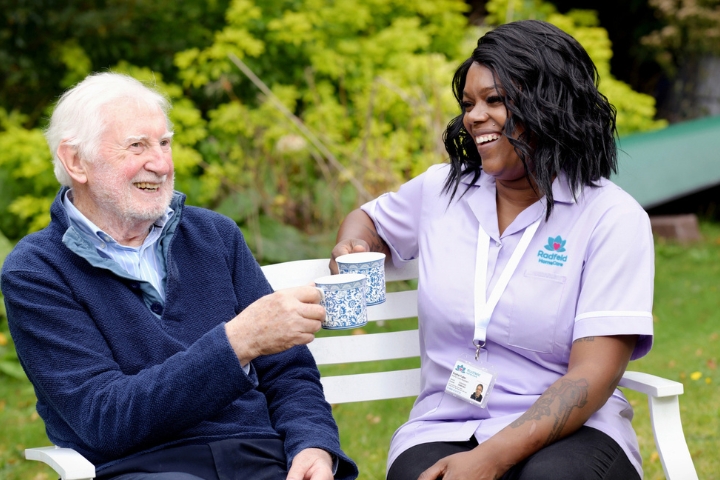
National Office
Please enter the office location/term above to receive results for your closest office as well as information matches
Dementia is a complex and challenging condition that affects millions of people worldwide. At Radfield, we are here to make ageing a more rewarding and enjoyable experience for everyone, and that includes supporting people living with dementia and their families to lead reach and fulfilling lives.
A key aspect of support is communication. Dementia not only impacts memory but also affects a person’s ability to communicate effectively. Maintaining a meaningful connection with those experiencing dementia is so important for loved ones and carers, especially when it comes to determining the support they may require. At Radfield we understand that this can at times be challenging, and in this article, we explore some valuable tips to help improve that all-important communication.
One of the most critical aspects of communicating with someone with dementia is patience. Appreciate that they might grapple with finding the right words or expressing themselves succinctly. Refrain from interjecting or completing their sentences for them. Instead, afford them the precious time they require to organise their thoughts and respond. Do this with a heart full of understanding and patience.
Non-verbal communication can be just as important as verbal communication, aim to maintain eye contact to show that you are engaged and attentive. Use facial expressions, gestures, and touch to convey your emotions and intention; a gentle touch on the hand or a warm smile can go a long way in reassuring them.
Complex language and lengthy explanations can confuse individuals with dementia, by keeping sentences shorter and more straightforward it can be easier for them to understand. Use clear and concise language to convey your message and avoid asking open-ended questions; instead, offer choices when possible to make decision-making easier.
Visual aids can be incredibly helpful when communicating with someone living with dementia. Use photographs, drawings, or simple charts to supplement your verbal communication. These visual cues can help them better understand and remember information.
Active listening is a vital skill when communicating with someone with dementia. Show that you are fully engaged by nodding, repeating their words, and validating their feelings. Listening actively can help build trust and encourage them to express themselves more freely.
Communicating with someone living with dementia requires patience, understanding, and adaptability. By following these tips, you can improve your communication skills and maintain a meaningful connection with your loved one.
Remember that every individual with dementia is unique, and what works best for one person may not work for another. Be understanding, patient, and willing to learn as you navigate the challenges of dementia communication and care.
If you would like to speak with someone about support for a loved one living with dementia or Alzheimer’s, your local Radfield Home Care team is on hand. Find your local office by clicking here.
Get in touch with your local Radfield Home Care office today and find out more about the support we offer and the difference we can make.